"...the publisher wouldn't let us call it the Goddamn Particle, though that might be a more appropriate title, given its villainous nature and the expense it is causing."
-Leon Lederman, author of The God Particle
The Higgs Boson: you know the deal. It's the last undiscovered particle in our current picture of all the fundamental particles in the Universe.
If we can find it, we'll either have a big clue as to what the next step to take in physics will be, or we'll be forced to admit that physics works too well, and many of the great hypotheses (supersymmetry, large extra dimensions, etc.) are highly unlikely to be within our reach. It all depends -- if we find it -- on what its properties are.
So how do we go about finding it? We accelerate particles to the highest energies we've ever reached on Earth, smash them into one another at strategic collision points, and observe the debris that results.
These collisions are so frequent at the Large Hadron Collider, numbering about 600 million per second, that we couldn't possibly record them all. Instead, what we do is look for exotic signals, or signals that have quickly measurable indicators that something interesting may be going on, and only record those. This is vital, because each collision shows up looking like this in one of the two main detectors.
So what particle physicists looking at this do is try to reconstruct, based on what's showing up in the detector, what was created when these collisions occurred. The difficulty of this is mind-boggling; it makes blood-spatter analysis look like child's play.
We can actually do this, and determine what particles came from what locations with a specific energy at a specific time, for pretty much everything (except neutrinos) that are produced! This is important, because depending on what mass of the Higgs Boson is, and whether it's a normal, standard-model Higgs or something more exciting, the Higgs should decay into different particles of a given energy.
So when we reconstruct that there were bottom-antibottom quarks leaving a collision, that's interesting. When we see two high-energy photons, that's interesting. When we see a tau-antitau pair, that's interesting, too. And so on.
But the Higgs isn't the only thing that produces those particles. In fact, many other things produce those particles. The big question -- and the reason finding the Higgs is so difficult -- is that we have to figure out how much. It's what makes physics so powerful, the fact that we're a quantitative science. And you may have seen the ATLAS results here just a few months ago, where their combined data provided some very suggestive evidence of a Higgs boson at about 126 GeV/c2.
The best signal, as you can see in red, comes from looking at what appears to be a Higgs Boson decaying into two photons.
But what does that mean? Where does that graph come from? Well, I don't need to describe it, when the cover of one of last month's issues of Physical Review Letters can show you!
What this graph is showing you is, with the black data points, the data observed by the ATLAS experiment. This is contrasted with the (red line) theoretical prediction of all the known particles and interactions of the standard model, excepting the Higgs. A deviation from that red line indicates either an experimental fluctuation or some type of new physics.
Let's go in for a closer inspection, with some annotations (in blue) by me.
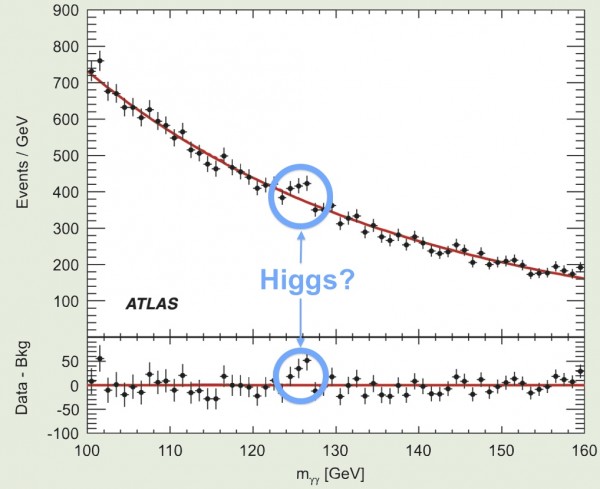
A visual inspection clearly shows the excess of data peaked at around 125 GeV/c2, but that's hardly an incredibly convincing graph! It should clearly show you why we say we need to take more data before we have successfully convinced ourselves that this is new physics and not simply a fluctuation. The degree of statistical significance we require in this discipline to announce a discovery is five standard deviations; on its own, this study -- the best individual channel searching for the Higgs Boson -- doesn't even reach three.
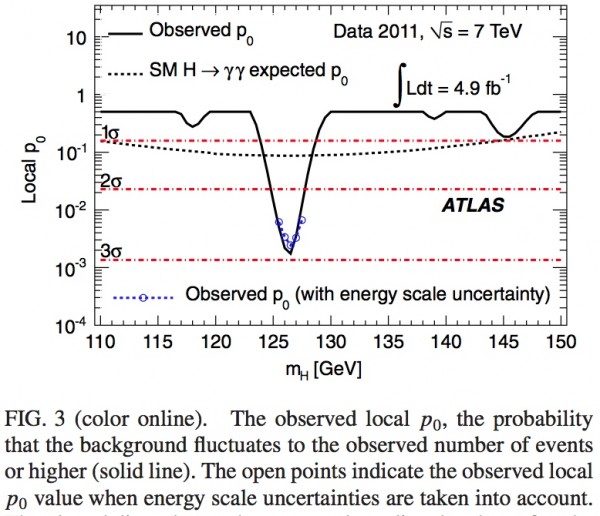
But this is why we're increasing the energy of the beam, taking more data, and trying to establish exactly what is and what isn't a fluctuation.
And if we can get the data to say that with some degree of certainty, "there is some new physics here," the next step is to ask whether it's a standard model Higgs Boson or not. Because it might be simply be a standard model Higgs Boson at ~125 GeV/c2, and there might not be any new physics beyond that -- in the world-case scenario -- all the way up to the Planck scale! (Of 1019 GeV!)
If this is the case, we should see a specific excess of signals at an energy corresponding to the Higgs Boson's mass in each channel: bottom-antibottom quarks, two photons, a tau-antitau pair, W-bosons, Z-bosons, etc.
If you take a look at the error bars on the graph, above, you'll see that we are way more likely to wind up on the green line (Standard Model Higgs) than the red line (no new physics), but we may also wind up in... well... a weird place! What do I mean by weird? I mean that the thing we find may not be the Higgs Boson we're looking for, or it may not be a Higgs Boson at all.
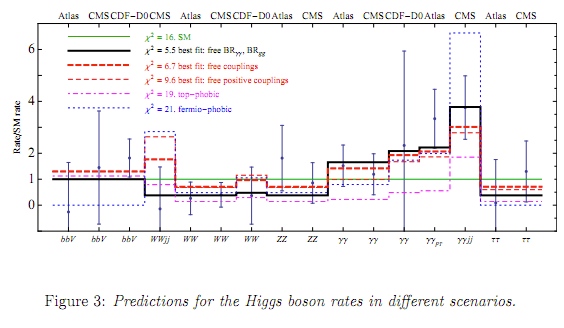
What we see, so far, is consistent with a Standard Model Higgs Boson, but that is by no means the only (or, arguably, even the best) interpretation. If I were a betting man, the Standard Model Higgs Boson is what *I* would bet on, but it isn't the only possibility, and we need to take more data to be able to decide.
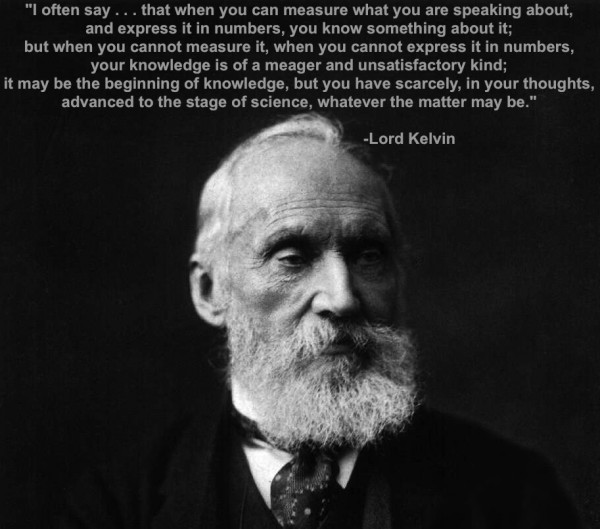
So be patient. This is how we do science, and this is what it takes to get it right. Above all else, we should all be ecstatic to see that the science is being done properly here; we owe it to everyone doing their job correctly to give them the time to do it right.

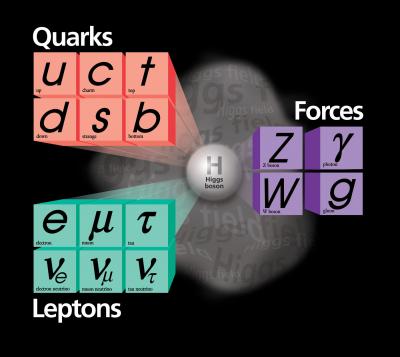
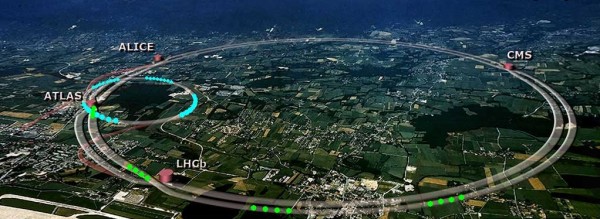
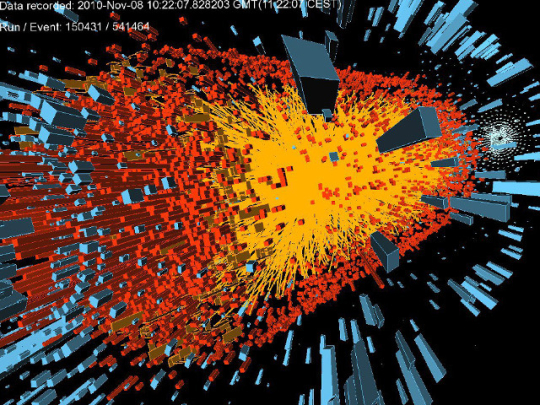
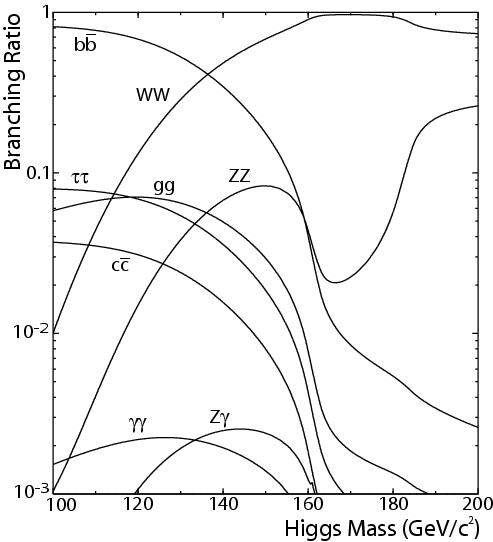
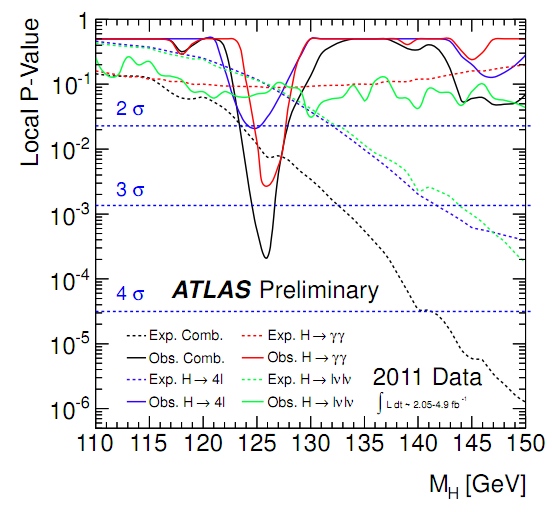
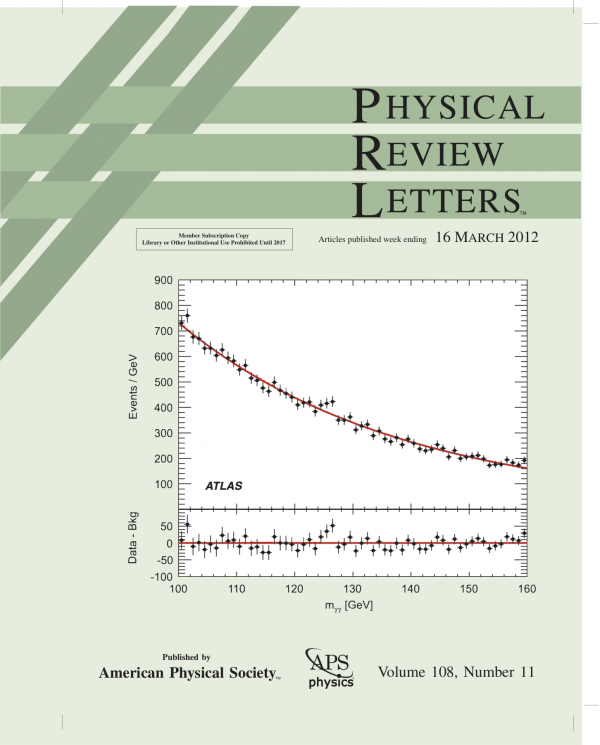
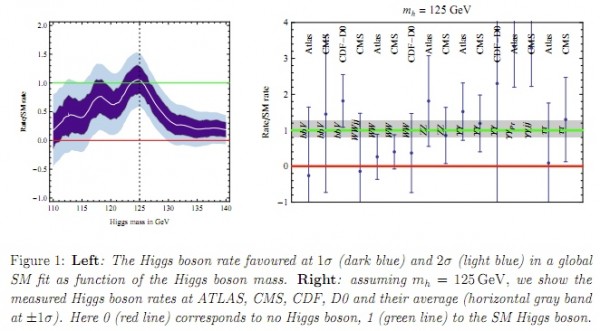
So why don't you take this patient wait and see attitude to dark matter? Wouldn't it behoove you to wait for detection of an actual particle or some physical proof before building a model of the universe and calling it proven?
Just a thought........
I think that âworld-caseâ scenario should be âworst-caseâ.
Iâm curious as to why Dirac's magnetic monopole (currently only one sighting) isnât equally considered to be the (or one of 'the') last undiscovered particles as well as the Higgs.
Iâm aware that the Parker limit absolutely prohibits any possibility of achieving a five sigma result for the MM but is that the only reason for excluding that particle from the standard model?
@Jon, it's pretty much proven that there is something affecting the path of light and path of stars via gravity.
Simulations of galaxy formation post big bang puts constraints on the behavior of that material.
Other experiments on earth put constraints on possible particles of dark matter.
Saying dark matter exists and detecting it are to different things.
After all of the fuss and Brian Greene shows on PBS, you're going to say: This is the way it goes but you can't get there from here. Wee. bc
A request:
Could you give us (relative) newbies (I studied classical physics at MIT, under the guise of Meteorology) a glossary of the Standard Model Particles, starting with the very nice 12-squares-plus-1-round-Higgs picture that leads off this article. Like define the symbols in the boxes and enlarge the small print. Show, pictorially, which forces relate to which particle interactions. And, BTW, what's a "Hadron" as in "LHC"?- I told you I was a newbie. It isn't in the picture.
The pictorial representation of what is going on (remember Weather Maps?) is much clearer, for me, than dictionaries.
Nobody who counts actually calls it "proven". It's just the most likely explanation for the observed data at the moment. I've certainly never seen Ethan claim that DM is proven.
"Nobody who counts actually calls it "proven"."
Ethan acts as if it's all proven. All other evidence is poppycock.
@ Stackpole:
1st-order approximation: http://www.particleadventure.org/index.html
2d-order: "Deep Down Things" by Bruce A. Schumm http://www.amazon.com/Deep-Down-Things-Breathtaking-Particle/dp/0801879…
It's proven there there's something very heavy and invisible to our telescopes exerting massive gravitational forces on matter around it and we know that unless galaxies vast increase their mass, they should be either flying apart or blending into formless blobs of stars at the speeds they spin. That something has the provisional name "dark matter" and do not know what it is. That's what Ethan says is proven and he bases his assessment on decades of direct observation of the phenomenon. Why does he do it? Because it's been shown to happen by decades of direct observations and measurements.
"It's proven there there's something very heavy and invisible to our telescopes exerting massive gravitational forces on matter around it"
WRONG!
What's PROVEN is that under our current understanding of gravity and the disposition of matter, the galaxies are spinning too fast.
A bunch of people have raised the parallel issue of dark matter versus the Higgs boson, but there is an important difference between the two. Namely, there are plausible alternatives to the standard model Higgs boson, and these plausible alternatives (or at least some of them) have not yet been ruled out. This is not true of dark matter. We know from various lines of evidence (galaxy clustering as well as rotation curves) that we cannot explain the present universe in terms of gravitational fields derived from general relativity and baryonic matter. There are two possible resolutions: some form of non-baryonic matter, a.k.a. dark matter, or a modified theory of gravity. Either approach gives testable predictions. Dark matter has passed every such test so far, while alternative theories of gravity do not. This is why Ethan is justified in saying that dark matter exists, while at the same time he is less sure that the standard model Higgs boson exists. Until all of the alternatives to the standard Higgs boson have been ruled out (or somebody comes up with an alternative theory of gravity which passes all of the observational tests that dark matter passes), Ethan will continue to be justified in holding this position.
"This is not true of dark matter."
What? That there are not some that have not been ruled out?
"Dark Matter" is a placeholder. It's Matter, as in ordinary matter since it reacts by gravity. It's dark because whatever it is, we can't see it.
The Higgs Boson signal is shown to over three sigma of over 95% certainty, the scientists are waiting for five sigma.
Dark matter is a placeholder, just as "Higgs Boson" was five-fifteen years ago.
Ethan has justification for his position, but he STILL holds the position. As Jon at #1 states.
So why are you arguing he's right whilst ignoring your agreement with him?
Jon: "Wouldn't it behoove you to wait for detection of an actual particle or some physical proof before building a model of the universe and calling it proven?"
Sure if he was talking about a specific hypothetical particle with certain properties, it would make sense to be patient until that particle is actually detected. For saying the phenomenon itself is solid, then the current evidence is sufficient.
WoW: "What's PROVEN is that under our current understanding of gravity and the disposition of matter, the galaxies are spinning too fast."
There's a lot more evidence than that, as you cannot be unaware since it's shown up regularly on this blog.
Wow: "'Dark Matter' is a placeholder. It's Matter, as in ordinary matter since it reacts by gravity. It's dark because whatever it is, we can't see it."
Right. And saying that there is a thing that we call Dark Matter, and that while we can't say what should be put in place instead of this placeholder name, it almost certainly exists, is quite reasonable, and this is Ethan's position.
"Ethan has justification for his position, but he STILL holds the position. As Jon at #1 states. So why are you arguing he's right whilst ignoring your agreement with him?"
Because Jon's criticism of that position and suggestion for Ethan to be patient as he suggests with the Higgs is misguided?
Nice summary of the Higgs research.
But I must disagree with Lord Kelvin, "when you cannot measure it, when you cannot express it with numbers, your knowledge is of a meager and unsatisfactory kind."
"After the publication of Charles Darwin's On the Origin of Species in 1859, William Thomson (i.e. Lord Kelvin) saw evidence of the relatively short habitable age of the Earth as tending to contradict Darwin's gradualist explanation of slow natural selection bringing about biological diversity. Thomson's own views favoured a version of theistic evolution sped up by divine guidance... He was soon drawn into public disagreement with geologists, and with Darwin's supporters John Tyndall and T.H. Huxley."
Darwin's observation and insight can not yet be expressed mathematically; but On the Origin of Species is science at its best.
Einstein profoundly said, "As far as the laws of mathematics refer to reality, they are not certain; and as far as they are certain, they do not refer to reality."
Einstein, "The formulation of the problem is often more essential than its solution, which may be merely a matter of mathematical or experimental skill."
Remember Einstein considered his discovery in Oct 1907 of the equivalence principle as "the happiest thought" of his life. It led to a mathematical quest for the field equations of general relativity which he did not find without much help from Grossmann and Hilbert until in 1916.
Einstein, "I am enough of an artist to draw freely upon my imagination. Imagination is more important than knowledge. Knowledge is limited. Imagination encircles the world."
I agree more with Einstein than Kelvin.
Ethan, I haven't had time to study closely but you write:
"you'll see that we are way more likely to wind up on the green line (Standard Model Higgs) than the red line (no new physics), but we may also wind up in..."
I thought anything that supporting the SM, that was expected, didn't really count as "new physics" in the sense people usually mean by that, even thought it's "new" as a discovery. Could you clarify?
There is no Higgs boson. We don´t know the meaning of energy.http://kappack.webs.com
"I thought anything that supporting the SM, that was expected, didn't really count as "new physics" in the sense people usually mean by that, even thought it's "new" as a discovery. Could you clarify?"
I'd say that since it makes perfect sense taking it to mean "new" as in the discovery of a Higgs and measurement of actual properties as opposed to "not" where there is nothing there that we haven't seen before, that this is what he meant.
"The universe is a disturbed field of pure energy seeking equilibrium" is a postulation could answer many of the enigmas including all the "blacks". It leads to two forms of gravity, -- the pseudo weak one that pins us to the earth, and the real one that keeps the heavens in their place.
If you want to make your quotes bulletproof, forget Kelvin; quote Lord Kevlar instead....
Recapitulating:
What the LHC detectors pick up is particles that were formed many steps down a decay avalanche. I suppose I should think of it not as 'creating a Higgs particle' but as 'creating a decay avalanche with a Higgs particle at its beginning'.
My question:
Is the LHC the only place in the Universe where Higgs particles are created at all?
Here is how I look at it: to get the required concentration of energy a proton and an anti-proton each at 99.99% of the velocity of light must collide head on. I don't see that happening by chance.
Hence my question: assuming Higgs bosons can exist in the first place, where or when can they be created at all? Are particle accelerators as powerful as the LHC the only places in the (current) Universe where decay-avalanches-with-a-Higgs-particle-at-its-beginning can arise?
@20 Cleon
As I understand. If Higgs exist, then it interacts everywhere (i.e. it accounts for mass everywhere) in our 4-dimensional spacetime; but the Higgs itself moves in an extra dimension of spacetime.
So mass itself is evidence of a Higgs particle or something else that accounts for mass; but to observe the Higgs directly one needs an awful lot of energy to for it to appear in our dimensions.
I defer to more expert opinions.
Too bad scientists didn't follow this line of thinking when they said they discovered that the neutrino traveled at superluminal speed!
"My question:
Is the LHC the only place in the Universe where Higgs particles are created at all?"
This is a bit of a problem for those who didn't read up on degree level elementary particle physics...
These particles aren't "created" in the LHC. They are given enough energy to appear and interact more visibly with the universe. In EPP terms, they are virtual particles and do not appear long enough to be noticed as separate entities, but they can be made to last longer if you give them enough energy (on the basis that you can borrow mass to make something "appear" as long as you pay it back before the debt is noted). The high energy particle however has many ways of decaying back to its base energy state and the more massive and more methods of giving that energy out to something else, the quicker it decays.
It isn't that they're "created" but that they're given enough energy to appear above the parapet of their brethren.
"It leads to two forms of gravity, -- the pseudo weak one that pins us to the earth, and the real one that keeps the heavens in their place."
However, we can manage to explain things fine with just the one gravitational force.
Why did you have to invent ""The universe is a disturbed field of pure energy seeking equilibrium"?
Which sounds like new-age hippy healing-crystal woomancering than anything sane or sensible.
"And saying that there is a thing that we call Dark Matter, and that while we can't say what should be put in place instead of this placeholder name, it almost certainly exists, is quite reasonable"
Except that this is still not what was originally maintained: "It's proven there there's something very heavy and invisible to our telescopes exerting massive gravitational forces on matter around it"
And it STILL doesn't mean Dark Matter *actually exists*. We use "dark" to describe "the absence of light", but the absence of light does not exist. We use "wave theory of light" but the wave's DO NOT EXIST.
We have a postulate that answers many problems other postulates do not, but this in no way proves the existence of Dark Matter.
It's why there needs to be a description of what this dark matter "actually is". Until then, we're just reinventing slood mechanics.
@Wow
Are you a solipsist?
I've always washed my hands afterwards, though, James...
On the subject of DM (and, indeed Black Holes, though nobody actually bothers to pretend that there really IS a black hole at the centre of one, hence never a problem), I guess you can say I am. We don't know what DM is, or whether it exists since we don't yet have an explanation of what it is or could be so that we can test whether the consequential effects of that proposition OTHER than the circular argument of "DM acts only gravitationally. And, since we only see gravitational effects, this must be because of DM".
At the moment, Dark Matter is only just above "invisible pink unicorns" in that we KNOW *something* is up (the observation of the motions of visible matter compared to what that observable matter should be able to make it do), whereas we don't even have an "invisible pink unicorn" shaped hole in our understanding of reality.
All we KNOW is that the visible matter isn't moving in accord with the way we understand Gravity under General Relativity. We ALSO know that GR gravity is broken at the extreme end of Quantum Mechanics.
There's plenty of room for GR to be wrong at the extreme upper end too. We know it's "wrong" already. It's just a little more wrong than currently accepted.
And since my post that brought up so much brouhaha was about someone saying "We KNOW Dark Matter exists because galaxies don't rotate at the right speed", please, rather than just go "You IDIOT! I keel you!", show where this circular logic is unlocked.